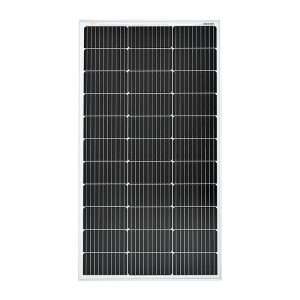Solar panels are becoming more and more popular. So how long can solar panels work? What is its lifespan?
How long do solar panels last?
In general, solar panels have a lifespan of more than 25 years.
As technology has updated, not only are solar panels very reliable, but the lifespan of solar panels has increased dramatically. In addition to decades of effective performance, many solar manufacturers offer performance guarantees for their products.
Remember, PV panel life expectancy doesn’t mean the panels on your roof will stop generating electricity after a few decades. It just means that the energy production of the solar panels will reduce the output. That is to say, the PV panel is degraded.
What is solar panel degradation rate?
The ability of a PV panel system to absorb sunlight and convert it into solar energy will be reduced during its lifetime. However, this slow efficiency loss takes many years to occur. Factors contributing to this include hot weather and a natural reduction in the chemical potency of the panels, also known as the “degradation rate.”
A solar panel with a lower degradation rate will generate more energy during its lifetime. Essentially, the lower the degradation rate, the better the solar panel.
The degradation rate of PV panels also depends on the brand. As you might expect, high-quality panels had lower degradation rates than low-quality panels.
Factors affecting the lifespan of solar panels

Solar panels can degrade faster than expected for a number of reasons.
Installation problem
PV panels are generally less prone to defects because they are durable. However, special care should be taken when installing the panels. An old, damaged or leaking roof can cause serious problems later on if the installer doesn’t properly assess any issues.
Please find a qualified and responsible professional installer before installing solar panels.
Weather
Strong storms can cause tree branches to fall and can damage the anti-reflective glass coating that covers solar panels. Heavy snow can cause panels to lose structural integrity and accelerate degradation, and large hail can damage glass.
Most manufacturers test and certify their panels to withstand storms and other harsh weather conditions. Still, be careful about exposing solar panels to extreme climate change. Timely maintenance of solar panels.
Temperature
The average temperature of your location is an important factor to consider before installing a solar system. Excessive heat can reduce your system’s energy production. Considering the climate in your area will help you arrange your solar panels in a better way so they stay at the right temperature for optimal operating conditions.
Conclusion
Some external factors that affect the service life of solar panels are uncontrollable. Still, there are ways you can learn about extending the life of your solar panels. For example, regularly clean solar panels or install solar panel protection.










